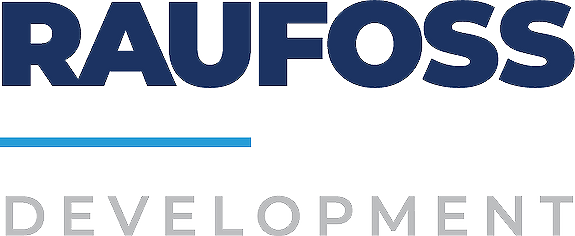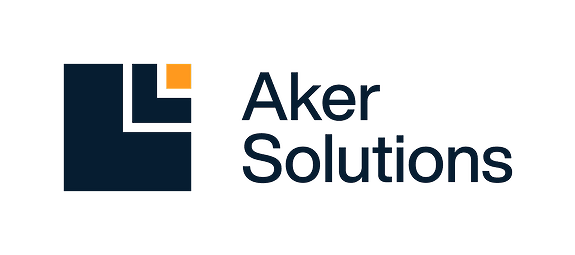
Postdoctoral Fellow in Stable Isotope Studies
- Arbeidsgiver
- NTNU - Norges teknisk-naturvitenskapelige universitet
- Stillingstittel
- Postdoctoral Fellow in Stable Isotope Studies
- Frist
- 02.05.2025
- Ansettelsesform
- Vikariat
Beskrivelse
NTNU is a broad-based university with a technical-scientific profile and a focus in professional education. The university is located in three cities with headquarters in Trondheim.
At NTNU, 9,000 employees and 43,000 students work to create knowledge for a better world.
You can find more information about working at NTNU and the application process here.
. Video: https://youtu.be/Xt-yHCN5QS0
About the position
We offer a 3-year fulltime postdoctoral research fellow position specializing in stable isotope analysis applied to archaeological osteological remains of humans and other key taxa, focusing on the introduction and early development of agriculture in Norway. The purpose of a postdoctoral position is to build up a researcher profile that qualifies for a position as associate professor. The position may also offer additional skills that are relevant to the postdoctoral fellow`s future career. The fellowship will begin at the latest by 01.09.2025.
The successful candidate will take part in the project Social Complexity and Population Entanglements in Norway 2500-1000 BCE: Understanding new biomolecular datasets through a humanist lens (SCAPES) funded by the Norwegian Research Council (project no 354692). SCAPES is a transdisciplinary and collaborative project involving partners from three Norwegian universities: The NTNU University Museum, The University of Oslo/ Museum of Cultural History and Department of Archaeology, Conservation and History; the University of Stavanger/Museum of Archaeology. In addition The institute for Energy Technology, and The Max Planck Institute of Geoanthropology.
The successful candidate will be based at the NTNU University Museum’s Department of Archaeology and Cultural History and will have access to lab and office facilities at The National Laboratory for Age Determination (NLD).
Your immediate leader will be the Head of Department.
About the project
SCAPES addresses the transition to enduring agriculture, sedentism and social stratification that took place on the Scandinavian Peninsula during the period 2500-1000 BCE. This is a multiproxy project bringing together expertise in archaeology, genetics, isotope studies and geochemistry to provide an innovative research environment that can illuminate the social and economic processes related to population change. Tthe project combines the latest aDNA results with multi-isotope methods and traditional archaeological analysis, contextualized with a humanistic, theoretical framework.
The project is designed with 5 workpackages. The Postdoctoral fellow’s prime tasks will be related to establishing sets of environmental proxy data in WP1: Isoscapes, demography and subsistence in collaboration with colleagues. Results from WP1 will contribute to (WP2) investigating sedentism and ritualization as well as mobility (WP3), collectively resulting in a synthesis (WP4) to inform a novel perspective on social organization and land-use during the formative period of agriculture in Central Scandinavia.
Work package leader WP1 is associate professor Birgitte Skar. The full project description will be made available upon request.
The postdoctoral fellow will:
- join a growing interdisciplinary research environment with several researchers, PhD students and post.doc`s, connecting archaeology with the natural sciences,
- perform isotope-driven research on the formative period of agriculture from the late Neolithic into the Bronze Age in Norway, focusing on δ13C and δ15N analyses of bone collagen.
- be a member of the Environmental Archaeology (EnvArch) research group and collaborate with members of the SCAPES project, merging humanistic approaches and specialized proxy methodologies like ancient DNA, radiocarbon dating, data science, bulk stable isotope analysis, and other techniques such as strontium analysis and compound-specific isotope analysis.
- build collaborations with national and international institutions and researchers.
More specifically, the postdoctoral fellow will design sample-collection strategies to build an isotopic baseline for the relevant period of Norwegian prehistory that outlines core human food webs analysing animal and human osteological material from core archaeological sites
The postdoctoral fellow will establish protocols for data collection, extract collagen, carry out stable isotope measurements using state-of the-art in house IRMS equipment, write research manuscripts for international journals, and co-author interdisciplinary papers with collaborating partners. Career-promoting work for the University Museum can include teaching, but also archaeozoology, human osteology, or stable isotope analyses for other projects, instrument maintenance or outreach activities.
In conclusion, the postdoctoral fellow will contribute to the scientific goals of the SCAPES project and the EnvArch research group and related research initiatives. He/she will be involved in ongoing and new initiatives at the University Museum. The University Museum has an ongoing research collaboration with the Lundbeck Foundation Centre for GeoGenetics, University of Copenhagen, aiming at assessing the process of the introduction of agriculture and related human mobility.
Duties of the position
- Finalize research design, include sample choice, sample size, data-collection strategy and protocol design for isotopic analyses specific to human remains and each chosen taxon (note that the core human remains are ready for subsampling).
- Liase with project partners at collaborating Universities, conduct sampling visits nationally and maintain excellent sampling records. A shorter research stay at The Max Planck Institute of Geoanthropology in Jena, Germany to sample and process human and faunal material for strontium isotope analysis is included in the tasks.
- Maintain, optimize and operate the IRMS instrument, pretreat samples and conduct primary analysis of human and faunal material of chosen taxa.
- Conduct quantitative data analysis in cooperation with staff at the Norwegian National Laboratory for Age Determination.
- Lead the writing of stable isotope papers with collaborators. Co-author interdisciplinary papers led by collaborators.
- Ensure open-access archiving of project stable isotope data, and associated meta-data, following state-of-the-art protocols.
- Maintain accurate and accessible records of research expenses and research activities, for reporting to the University Museum.
- Give effective project presentations in English and act as an ambassador during research activities and conference attendance, nationally and internationally.
- Provide frequent updates of project progress to Birgitte Skar, Bente Philippsen and contribute to the collaboration in the project group of the RCN-funded project SCAPES.
- Engage with training opportunities as needed to fulfill interdisciplinary objectives of the role.
Required selection criteria
The postdoctoral fellow holder will have successfully defended his/her PhD, authored high-quality publications, and demonstrated intellectual drive and cooperative skills in teamwork. The candidate must be motivated to contribute to the scientific goals of the SCAPES research team.
- You must have completed a Norwegian doctoral degree or corresponding foreign doctoral degree recognized as equivalent to a Norwegian PhD in archaeology, biology, chemistry, physics or a related field. You must document that the PhD thesis has been submitted by application date, your application can be assessed even if you have not yet defended your dissertation. Documentation of the obtained doctoral degree must be presented before you can take on the position. A successfully defended PhD must be completed at the latest by start date.
- Demonstrated experience in stable isotope analyses, including sample preparation and IRMS measurements.
- A strong academic background from your previous studies
- A track record of international journal publication, commensurate with career stage and thematic area. For recent graduates, planned publications can be in manuscript form if available for evaluation.
- Demonstrated attention to detail regarding collection and analysis.
- Very good written and oral English language skills.
PLEASE NOTE: For detailed information about what the application must contain, see paragraph “About the application”.
In a postdoctoral position in Norway, the regulations require the same educational competences as those for an associate professor position. If you do not already possess these qualifications, NTNU will arrange career-promoting activities within education as part of your career planIn such cases, you will also be assigned relevant teaching as part of the career-promoting work.
The appointment is to be made in accordance with Regulations for the Universities and Colleges Act (university and colleges regulations).
Preferred selection criteria
- Direct experience in operation of IRMS instruments and stable isotope analysis or related techniques.
- Direct experience of osteology and/or archaeology.
- Excellent public presentation skills and capability.
- Evidence of experience working with relevant computer programming languages and statistical analysis.
- Scandinavian language skills.
Personal characteristics
- Honesty
- Collegiality
- Intellectual ambition
- Generosity
- Attention to detail and ability for interdisciplinary contextualization.
Working as a Postdoctoral fellow requires that you
- Work independently
- Work structured, set goals and make plans to achieve them
- Present and discuss your research with other professionals
- Engage and contribute constructively with feedback
- Work constructively under pressure or in the face of adversity
- Show curiosity and a strong motivation for the subject
- Analyze data, assess different perspectives and draw well-founded conclusions
- Are flexible and open to adjusting the plan for the project as needed
Emphasis will be placed on personal and interpersonal qualities.
We offer
- A post.doc with competitive funding for running expences
- Exciting and stimulating tasks in a strong international academic environment
- Encouragement and support to develop an independent research profile within a cooperative team
- An open and inclusive work environment with dedicated colleagues
- An exciting job with an important social mission
- Career guidance throughout the postdoctoral program and together with you we will prepare a career plan, which containsthe skills and knowledge you will acquire
- A competitive salary and generous holiday entitlement
- Favourable terms in the Norwegian Public Service Pension Fund
- Employee benefits
Diversity
Diversity is a strength, and at NTNU we aim to be an employer that reflects the diversity in society and that makes use of the potential of the population's collective skills. Our vision is Knowledge for a better world and our values are creative, critical, constructive and respectful. We believe that an organization that is equal, diverse and gender-balanced is essential for us to achieve our goals.
We strive to attract employees with different skills, life experiences and perspectives to contribute to even better problem solving of our societal mission in research and education.
If you think this position is relevant and interesting, we encourage you to apply, regardless of gender, functional ability and cultural background, or whether you have been out of work for a period of time.
Salary and conditions
Postdoctoral Fellow belongs in code 1352 and a competitive salary will be offered pending on your qualifications and seniority. From the salary, 2% is deducted as a contribution to the Norwegian Public Service Pension Fund.
The period of employment is 3 years, including one year of career promotion work (amongst courses within educational competence.)
The position is partly conditional on external funding.
As an employee at NTNU, it is important to keep yourself up to date with academic and organizational changes and to adapt to them.
For the necessary professional and social interaction, it is a prerequisite that you are physically present and available to the institution on a daily basis.
The appointment is carried out in accordance with the principles of the State Employees Act, and Export control (legislation that regulates the export of knowledge, technology and services). Candidates who, after assessment of the application and attachments, are considered to be in conflict with the criteria in the latter act, will not be able to be employed.
About the application
The attachments (including a description of your scientific work) must accompany the application as these documents form the basis of the application assessment. The documents must be in Norwegian/a Scandinavian language or English.
Please note: the application will only be assessed on the basis of the information we have by the application deadline. Therefore, make sure that your application clearly shows how your skills and experience meet the criteria described above.
The application must include:(decide on what must be included - remove what does not fit)
- Transcripts and diplomas for Bachelor's-, Master's- and PhD degrees. If you have not yet completed your PhD, you must provide confirmation on your estimated date for the doctoral dissertation and confirmation that your PhD thesis has been submitted. Documentation of a completed doctoral degree must be presented before taking up the position.
- CV
- A letter of motivation (max. 2 pages) stating specifically why you believe you meet the selection criteria
- A copy of the doctoral thesis.
- Research plan
- Academic works - published or unpublished (up to 5 items)
- Possible recommendation letters
- Name and contact information of three referees
If all or parts of your education has been taken abroad, we also ask you to attach documentation of the scope and quality of your entire education. Description of the documentation required can be found here. If you already have a statement from Norwegian Directorate for Higher Education and Skills (HK-dir), please attach this as well.
Joint works will be considered. If it is difficult to identify your contribution to joint works, you must attach a brief description of your participation.
If you have had leave or another break in your career, it is important that this is stated in your application so that the selection committee can take this into account and that the amount of your research may be reduced as a result.
In the evaluation of which candidate is best qualified, emphasis will be placed on education, experience and personal qualities. Motivation, ambitions and potential for research will also be emphasized in the assessment of the candidates.
NTNU recognizes a wide range of academic contributions and is committed to follow evaluation criteria for research quality according to The San Francisco Declaration on Research Assessment DORA and the obligations in CoARA (responsible assessment of research and recognition of a greater breadth of academic contributions in accordance with NTNU's social mission).
General information
A public list of applicants with name, age, job title and municipality of residence is prepared after the application deadline. If you wish to be exempt from entry on the public list of applicants, this must be justified. Assessment will be made in accordance with current legislation. You will be notified if the exemption is not granted.
If you have any questions about the position, please contact associate professor Birgitte Skar, phone +47 934 66 214, birgitte.skar@ntnu.no .
If you have any questions about the recruitment process, please contact HR consultant Anne Karin Henning, e-mail: anne.karin.henning@ntnu.no
If you find this position interesting, and in accordance with your qualifications, please submit your application electronically via jobbnorge.no with your CV, diplomas and certificates attached. Applications submitted elsewhere will not be considered. Upon request, you must be able to obtain certified copies of your documentation.
Application deadline: May 2nd, 2025
For practical information about working at NTNU, please visit this webpage.
The city of Trondheim is a modern European city with a rich cultural scene. Trondheim is the tech capital of Norway with a population of 200,000.The Norwegian welfare state, including healthcare, schools, kindergartens and overall equality, is probably the best of its kind in the world. Professional subsidized day-care for children is easily available. Furthermore, Trondheim offers great opportunities for education (including international schools) and possibilities to enjoy nature, culture and family life and has low crime rates and clean air quality.
- Sektor
- Offentlig
- Sted
- NTNU Vitenskapsmuseet, Kalvskinnet, 7491 Trondheim
- Stillingsfunksjon
- Forskning/Stipendiat/Postdoktor, Ingeniør, Annet
- FINN-kode
- 401267957
- Sist endret
- 04. apr. 2025 12:18
Mer som dette





